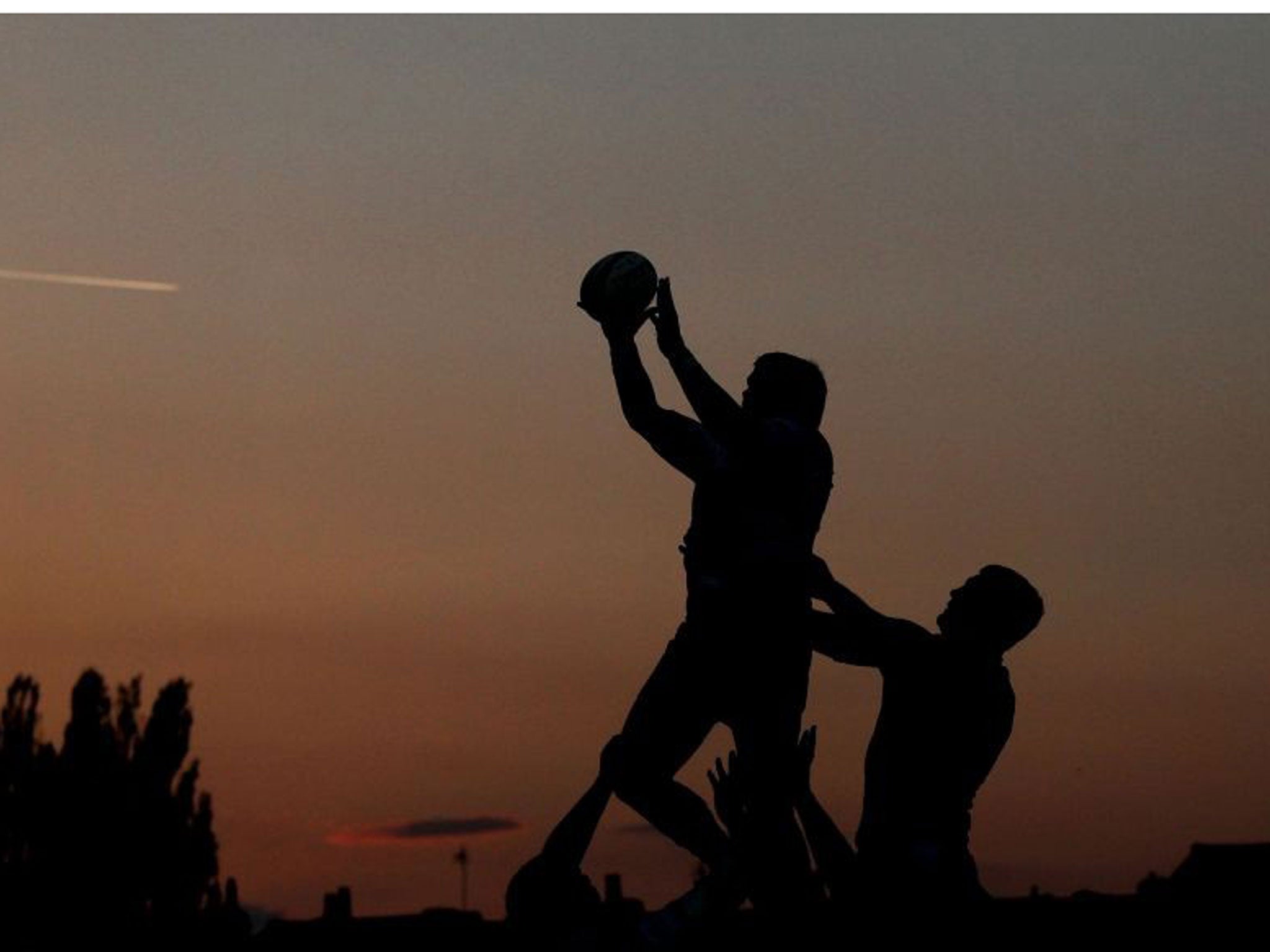Rugby injuries could be linked to early onset dementia, warns scientist
Dr Willie Stewart found that high impact sports could lead to the disease normally associated with former boxers

Your support helps us to tell the story
From reproductive rights to climate change to Big Tech, The Independent is on the ground when the story is developing. Whether it's investigating the financials of Elon Musk's pro-Trump PAC or producing our latest documentary, 'The A Word', which shines a light on the American women fighting for reproductive rights, we know how important it is to parse out the facts from the messaging.
At such a critical moment in US history, we need reporters on the ground. Your donation allows us to keep sending journalists to speak to both sides of the story.
The Independent is trusted by Americans across the entire political spectrum. And unlike many other quality news outlets, we choose not to lock Americans out of our reporting and analysis with paywalls. We believe quality journalism should be available to everyone, paid for by those who can afford it.
Your support makes all the difference.A brain injury specialist has established a link between early onset dementia and playing rugby, as well as other high injury sports.
During an interview with BBC Radio Scotland Dr Willie Stewart discussed research he had undertaken with a former rugby player, where he examined tissue sections and discovered abnormal proteins usually associated with head injuries and dementia.
He said high impact sports such as American football, ice hockey and rugby are beginning to lead to problems later in life normally suffered by former boxers.
The former player he examined was found to have higher levels of the protein than a retired amateur boxer who has dementia pugilistica, also known as punch drunk syndrome.
Symptoms, such as poor memory, speech, coordination and personality problems will usually appear around 15 years after the boxer's career starts.
But until recently it had been thought to only affect boxers who suffered repeated concussive injuries through blows to the head, he added.
Dr Stewart said the percentage of rugby players affected is likely to be lower than other high impact sports where concussion is common, but was nonetheless a concern.
Speaking on BBC Radio Scotland's Sport Nation programme, he said: "What we're finding with people who've survived head injuries is that their brain shows changes down the microscope that look very much like what you would see in people with dementia, so similar abnormalities in people with Alzheimer's Disease.
"Now, we've known that in boxing for instance repeatedly injuring your brain can read to a syndrome, punch drunk syndrome, and you can imagine what that is.
"The pathology of that is better classified as dementia pugilistica and we kind of assumed it was only boxing related and you had to be exposed to a lot of concussive injuries. But what we're seeing here and in America is that it's happening in other sports where athletes are exposed to head injury in high levels.
"The damage is a number of things, we see a build up of a protein on the brain that normally appears in Alzheimer's cases, it builds up in nerve cells and is associated with the brain not working properly, so causes memory problems and personality problems."
Dr Stewart, who is based at the Southern General Hospital in Glasgow, said better precautions should be observed by players and organisers.
"On current evidence from American football and boxing I think it would be foolish to think there will be no problem and that rugby is immune from brain damage," he said.
"What proportion of players will be affected, how many times you would need to be concussed, how long after will it develop - these are questions we can't answer but we would suspect it will be a fairly low number but not a zero number.
"The dementia pugilistica stats would say that somewhere between 15 per cent and 20 per cent of boxers who retire after a long career will develop the dementia. I don't believe rugby is anywhere near that category, but even if its only 1 per cent that's a concern."
All sports that carry the risk of head injury, including football, horse racing and show jumping, have a responsibility to ensure athletes recover fully.
"The general advice for concussion is 'if in doubt sit it out'.
"So for all levels of sport if you think there has been a concussion the player should be removed and not exposed to risk, because the second head injury coming in a short space of time before the brain has properly recovered can be much more severe."
Join our commenting forum
Join thought-provoking conversations, follow other Independent readers and see their replies
Comments